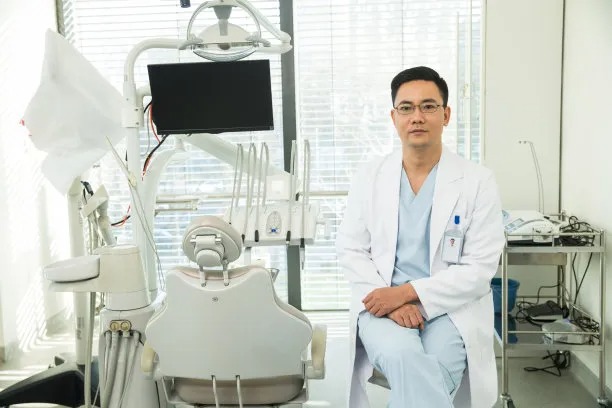Exploring the Benefits and Latest Innovations in Dental Implant Treatments for a Healthier Smile and Improved Quality of Life
Summary: Dental implants are revolutionizing the field of restorative dentistry, providing patients with effective solutions for missing teeth. This article explores four key aspects of dental implant treatments: the various benefits they offer, the latest innovations that enhance their effectiveness, the role of advancements in technology in treatment procedures, and how dental implants can significantly improve quality of life. By understanding these elements, patients can make informed decisions regarding their dental health, leading to not only a healthier smile but also greater overall well-being.
1. Comprehensive Benefits of Dental Implants

Dental implants provide a multitude of benefits that go beyond simply restoring the appearance of a smile. One of the most significant advantages is their ability to mimic the function and feel of natural teeth. Unlike dentures, which can slip or need adjustments, implants are securely anchored in the jawbone, providing stability and comfort. This reliable base allows patients to eat, speak, and smile confidently without worrying about their dental work.
Another important benefit is the preservation of bone health. When a tooth is lost, the jawbone can deteriorate due to a lack of stimulation. Dental implants help to stimulate the bone, maintaining its density and structure. This biological benefit is crucial not just for aesthetics, but for the long-term health of the jaw and surrounding teeth.
Furthermore, dental implants offer durability. With proper care, they can last many years—often a lifetime—in contrast to other restorative solutions like bridges and dentures, which may require replacement. This longevity makes implants a cost-effective solution over time, minimizing the need for additional procedures.
2. The Latest Innovations in Dental Implant Technology
The field of dental implants is continually advancing, with new technologies enhancing treatment outcomes. For example, 3D imaging technology allows dentists to create precise virtual models of a patients mouth, enabling personalized treatment planning. This tailored approach not only improves the accuracy of implant placement but also minimizes the risk of complications.
Another exciting innovation is the development of mini dental implants, which require less invasive procedures compared to traditional implants. These smaller implants are particularly beneficial for patients with narrow jawbones or those who prefer a quicker recovery. They can often be placed with local anesthesia, allowing for a more comfortable experience.
Additionally, the use of regenerative materials, such as stem cells and growth factors, is shaping the future of implant technology. These materials can enhance the healing process and promote faster osseointegration—the integration of the implant with the jawbone. Such innovations not only shorten recovery times but also increase the success rates of dental implants.
3. The Impact of Technology on Implant Procedures
Technology is reshaping how dental implant procedures are performed. Digital workflows have replaced many traditional methods, streamlining the process from consultation to final restoration. Computer-aided design and computer-aided manufacturing (CAD/CAM) ensure that implants are crafted to precise specifications, improving their fit and functionality.
Furthermore, robotics in dentistry is making waves in surgical precision. Robotic-assisted implant placement allows for enhanced accuracy and reduced invasiveness during surgery. These systems can help dentists achieve ideal angles and depths, which are crucial for maximizing the longevity of the implant.
Lastly, telehealth is becoming an integral part of the implant process, allowing patients to consult with specialists remotely. This level of convenience can help broaden access to care, making it easier for patients in remote areas to receive expert opinions and treatment recommendations.
4. Improving Quality of Life through Dental Implants
The positive effects of dental implants extend into various aspects of life, contributing to improved physical and mental health. The confidence gained from a restored smile can have profound social impacts. Many patients report increased self-esteem and enhanced social interactions, leading to healthier personal and professional relationships.
Moreover, with the ability to chew and speak effectively restored, patients can enjoy their favorite foods without hesitation. This improvement in dietary choices can lead to better nutrition and overall well-being. As individuals can eat a diverse range of foods, their general health improves substantially.
Lastly, the long-term durability of dental implants reduces the stress and anxiety associated with dental visits for repairs or replacements. Patients can enjoy peace of mind knowing that their dental restorations are designed to last. This stability contributes to an enhanced quality of life, allowing individuals to focus on things that matter most.
Summary:
In exploring the various benefits and innovations in dental implant treatments, it becomes evident that these advancements are pivotal in transforming patient experiences and outcomes. With enhanced technology paving the way for high-quality dental care, individuals can expect a healthier smile along with improved confidence and quality of life.
This article is compiled by Vickong Dental and the content is for reference only



